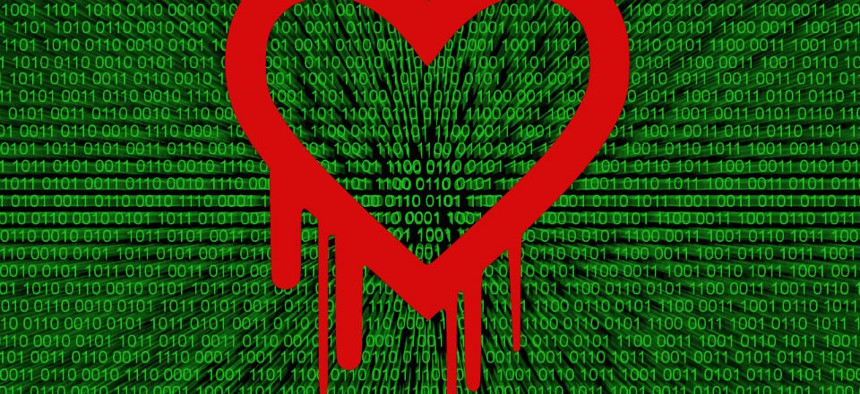Google Knew About Heartbleed and Didn’t Tell the Government

wwwebmeister/Shutterstock.com
Companies may hesitate to cooperate with the feds after NSA surveillance revelations, ACLU technologist says.
For some period of time, Google knew about a critical flaw in Internet security and didn't alert anyone in the government.
Neel Mehta, a Google engineer, first discovered "Heartbleed"—a bug that undermines the widely used encryption technology OpenSSL—some time in March. A team at the Finnish security firm Codenomicon discovered the flaw around the same time. Google was able to patch most of its services—such as email, search, and YouTube—before the companies publicized the bug on April 7.
The researchers also notified a handful of other companies about the bug before going public. The security firm CloudFlare, for example, said it fixed the flaw on March 31.
But the White House said Friday that no one in the federal government knew about the problem until April. The administration made the statement to deny an earlier Bloomberg report that the National Security Agency had been exploiting Heartbleed for years.
"Reports that NSA or any other part of the government were aware of the so-called Heartbleed vulnerability before April 2014 are wrong. The Federal government was not aware of the recently identified vulnerability in OpenSSL until it was made public in a private sector cybersecurity report," Caitlin Hayden, a White House spokeswoman, said in a statement.
"If the federal government, including the intelligence community, had discovered this vulnerability prior to last week, it would have been disclosed to the community responsible for OpenSSL."
It remains unclear whether the U.S. government had any advance warning at all before the public announcement about the bug on April 7. Hayden did not explain whether the "private sector cybersecurity report" refers to something other than the public announcement.
Asked whether Google discussed Heartbleed with the government, a company spokeswoman said only that the "security of our users' information is a top priority" and that Google users do not need to change their passwords.
Companies often wait to publicize a security flaw so they can have time to patch their own services. But keeping the bug secret from the U.S. government could have left federal systems vulnerable to hackers. The IRS said it's not aware of any vulnerabilities in its system, but other agencies that use OpenSSL could have been leaking private information to hackers.
The government encourages companies to report cybersecurity issues to the U.S. Computer Emergency Readiness Team, which is housed in the Homeland Security Department. US-CERT has a 24-hour operations center that responds to security threats and vulnerabilities.
Chris Soghoian, the principal technologist for the American Civil Liberties Union, said the U.S. government only has itself to blame if tech companies don't trust it to handle sensitive security information.
He said that because government agencies often share information with each other, there's no way for a company to be sure the NSA won't get information shared with another agency and use it to hack into private communications.
"I suspect that over the past eight months, many companies have taken a real hard look at their existing policies about tipping off the U.S. government," he said. "That's the price you pay when you're acting like an out-of-control offensive adversary."
(Image via wwwebmeister/Shutterstock.com)



